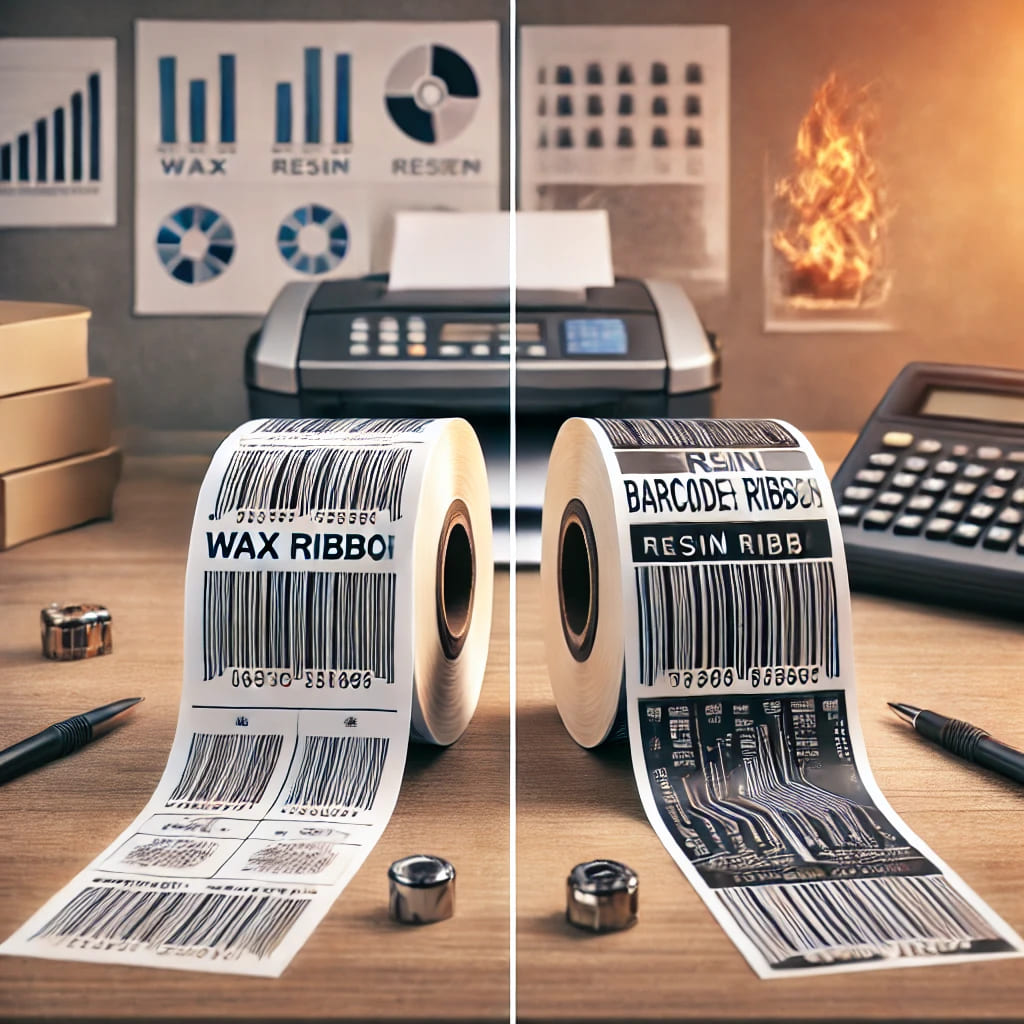Wax vs. Resin Ribbons: Which Is Better for Your Barcode Printer?
Barcode printing plays a crucial role in retail, manufacturing, logistics, healthcare, and almost every industry that depends on identification and tracking. But choosing the right ribbon for your barcode printer is just as important as choosing the printer itself.
When it comes to thermal transfer printing, the two most commonly used ribbons are Wax and Resin. Both have their strengths, performance differences, and ideal use cases.
This guide will help you understand the differences so you can pick the ribbon that best suits your business needs.
What Is a Thermal Transfer Ribbon?
A thermal transfer ribbon is a coated polyester film that uses heat to transfer ink onto labels. It comes in three main types:
- Wax
- Wax-Resin
- Resin
1. Wax Ribbons
Wax ribbons are the most commonly used and the most economical option.
Key Features of Wax Ribbons
- Made primarily of wax-based ink.
- Best suited for standard paper labels.
- Requires low printhead energy.
- Provides good print quality for barcodes, text, and simple graphics.
Pros of Wax Ribbons
- Affordable - Lowest cost among ribbon types
- Good for high-volume printing
- Suitable for general-purpose labeling
- Reliable on matte and semi-gloss paper labels
Cons of Wax Ribbons
- Not resistant to heat, moisture, chemicals, or abrasion
- Can smudge if exposed to friction
- Not ideal for outdoor or industrial environments
Best For
- Retail pricing labels
- Shipping labels
- Warehouse inventory labels
- Office or product identification labels (indoor use only)
2. Resin Ribbons
Resin ribbons deliver the highest durability, quality, and resistance.
Key Features of Resin Ribbons
- Made from a strong resin-based formula.
- Requires more heat to print but results in extremely durable output.
- Designed for synthetic labels like PET, PP, PVC, and other specialty materials.
Pros of Resin Ribbons
- Highly durable prints
- Resistant to chemicals, oil, solvents, and harsh cleaning agents
- Withstands heat, abrasion, and outdoor conditions
- Ideal for long-term usage and heavy-duty applications
Cons of Resin Ribbons
- Higher cost than wax or wax-resin ribbons
- Requires synthetic label material
- Prints take slightly longer due to higher melting temperature
Best For
- Chemical drum labels
- Medical and laboratory labels
- Outdoor asset tags
- Electronics and automotive parts labeling
- Industrial supply chain and manufacturing labels
Which Ribbon Should You Choose?
Choosing between wax and resin depends on your application, label material, and the environment where the labels will be used.
Choose Wax Ribbon If:
- You need cost-effective printing
- Labels are used indoors
- You print high volumes of paper labels
- Your labels do not come in contact with chemicals or harsh conditions
Choose Resin Ribbon If:
- Labels must survive extreme conditions
- Durability is your top priority
- You're printing on synthetic labels
- Your industry requires long-lasting, chemical-resistant labels
Final Thoughts
Both Wax and Resin ribbons perform exceptionally well when used in the right applications. If your business requires simple, general-purpose labels, wax ribbons offer great value for money. But if your operations demand long-lasting, durable labels that can withstand chemicals, water, and heat, resin ribbons are the best choice.
Need Professional Assistance?
Our team at TSC Barcode Printers can help you:
- Assess your specific printing needs
- Recommend the perfect ribbon type
- Provide compatibility verification with your printer
- Offer ongoing technical assistance
Contact our ribbon experts today for personalized recommendations and discover how the right ribbon choice can optimize your printing operations!

